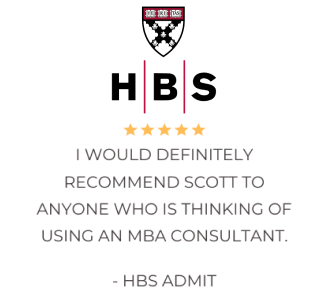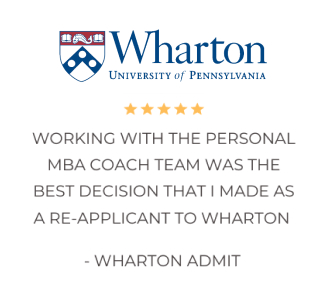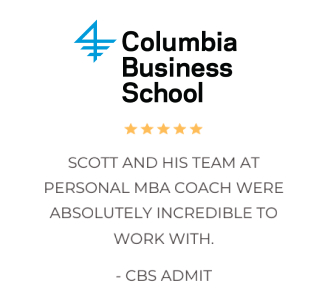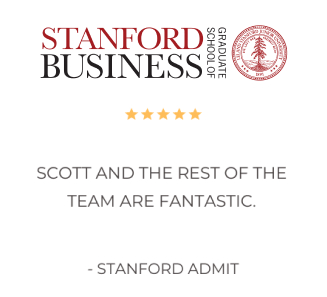Targeting a Master of Finance degree?
This week, Personal MBA Coach dives into the application essays for Master of Finance (MFin) programs!
Below, Personal MBA Coach shares the application essays for the top Master of Finance programs along with our tips on how to approach these essays.
MIT Sloan Master of Finance Essay Questions
MIT Sloan Master of Finance Essay 1: Please discuss your past academic and professional experiences and accomplishments that will help you succeed in the MFin program. Include achievements in finance, math, statistics, and computer science, as applicable. (200 words or less)
MIT Sloan Master of Finance Essay 2: Tell us about your short-term and long-term professional goals. How will our MFin degree help you achieve these goals? (200 words or less)
MIT Sloan Master of Finance Essay 3: What personal qualities will enable you to contribute to the advancement of our mission? (200 words or less)
Master of Finance University of Chicago Essay Questions
Master of Finance University of Chicago Essay 1: How will the Booth Master in Finance help you achieve your immediate and long-term career goals? (Maximum 300 words.)
Master of Finance University of Chicago Essay 2: Graduate education in finance is as much about personal growth as it is about professional development. We’d like to learn more about you outside of the classroom/work environment. Use this opportunity to tell us something about who you are. (Maximum 400 words.)
Columbia Master of Science in Financial Economics Essay Questions
Columbia Master of Science in Financial Economics Essay 1: Please describe your educational goals and those academic and/or professional achievements which have contributed most to your development. (maximum 500 words)
Columbia Master of Science in Financial Economics Essay 2: Please indicate your expected career track and describe how the MS in Financial Economics program will help you attain your career goals. Please be specific.(Maximum 500 words)

London Business School Master in Finance Essay Questions
London Business School Master in Finance Essay 1: What are your career objectives and what steps are you taking to achieve them? What alternatives are you considering? What geographical region do you hope to work in? (maximum 500 words)
London Business School Master in Finance Essay 2. What specific areas of London Business School life are you most excited about getting involved in and where do you believe you will add value to the School Community?(maximum 300 words)
NYU Stern Master in Finance Essay Question
NYU Stern Master in Finance Essay: Personal Expression: Describe yourself to the Admissions Committee and to your future classmates using six images and corresponding captions. Your uploaded PDF should contain all of the following elements:
- A brief introduction or overview of your personal expression. (maximum 100 words)
- Six images that help illustrate who you are.
- Maximum 50 words captionfor each of the six images that helps explain why they were selected and are significant to you.
USC Marshall Masters in Finance Essay Question
USC Marshall Masters in Finance Essay: The MSF program is looking for students who are a great fit for our program, and for whom our program is a great fit. Please tell us specifically how our program inspires you and how it aligns with your long-term aspirations; what personal experiences and qualities make you a great fit for our MSF program? If you join the MSF program, how would you positively impact our community? (250 words maximum)
McCombs Master in Finance Essay Question
McCombs Master in Finance Essay: How have your personal, academic, and professional experiences led you to pursue an MSF at this time? Please discuss both your short- and long-term career goals, including your vision of your post-graduation employment, and describe how MSF will help you meet those goals. (Required – maximum 500 words)

Personal MBA Coach’s Take on the Master in Finance Application Essays
Overall, as is the case with most top MBA essays, Master of Finance admissions committees generally want to know what each applicant aims to do after earning their MFin degree, why they are positioned to succeed in the program, and what makes the candidate unique. Some schools are also interested in how the applicant will add value once on campus.
Most schools require multiple essays, offering the applicants an opportunity to tell their story holistically.
To help guide you, Personal MBA Coach has broken down the MFin essays into three broad categories: “Career Essays,” “Contribution Essays” and “Personal Essays” and shared our advice on how to approach each. Keep in mind that some schools will break down the “Career Essay” into multiple pieces. It is also important to note that the application essays are fairly short. This means staying focused, concise and factual remains as important for MFin applicants as it is for MBA applicants.
Essay Type 1: Career Goals MFin Essay
This is your standard “why MFin and why our school?” essay question, and you should approach it directly. This is not the time for a motivational personal story. Instead, you should focus on discussing what you have achieved so far, what you are interested in doing in the future (aka your goals) and how their specific MFin program fits into your plans. Schools require a varying level of detail depending on the word count, but the intention is the same.
For example, Columbia has two essay questions, each offering 500 words of real estate, separating your past experiences and future aspirations from your specific plans for your time during the program. Meanwhile, MIT Sloan has only two 200-word essays for you to cover your goals, your past achievements and your aspirations at MIT Sloan. Chicago Booth asks applicants to cover all three items in only 300 words, so you will need to use your real estate wisely.
As you approach your career goals essay, keep a few things in mind:
- You will NOT be able to include everything you have done academically or through extracurricular and professional activities (think internships) so focus on the highlights and the skills most relevant to your goals.
- Goals should be specific and attainable. You should arrive on campus with a plan, not a vision of finding yourself or figuring it out when you get there (though no one will hold you to what you write in your applications). Our advice for MFin applicants is similar to our advice to MBA applicants here. Check out this article on goals to learn more!
- Be specific. When discussing how a particular program will help, avoid generalities. Instead, take the time to research the specific program and everything it offers and show the reader how you plan to take advantage of the most relevant offerings.

Essay Type 2: Contribution MFin Essay Questions
As we have seen over after the past 17 years, admissions directors want applicants who will contribute to the classroom and the overall community. To tease this out, some schools directly ask what we at Personal MBA Coach call a “contribution essay.” In some cases, this is a dedicated essay and in others it is rolled into a career goals essay. For example, MIT Sloan has a 200-word essay asking you about your potential contributions to their mission.
Other programs, including London Business School and USC Marshall, ask candidates to include their potential value-add or impact as part of a broader essay.
Regardless of the exact wording, it is important to stay focused and concise. The most compelling contribution essays help the admissions committee understand your achievements and passions while showing how you will enhance the experience of those around you. Discuss specific contribution ideas (think clubs you will join, roles you hope to have on campus, etc.), being sure to briefly explain why you are well positioned to succeed in these endeavors.
Essay Type 3: Personal MFin Essay Questions
Finally, some schools include open-ended questions that just allow the admissions directors to get to know the real you. Chicago Booth allows up to 400 words for you to discuss who you are outside of the office/classroom. This second Chicago Booth essay challenges applicants to think about personal aspects of their profile.
McCombs does not have a dedicated personal essay, but it does want to hear from candidates about how their personal experiences may have affected their MFin aspirations, and with 500 words available, it is realistic to do so.
NYU Stern has a very different approach with “less is more,” asking candidates to submit six photos with captions, which mirrors their “Pick 6” MBA essay.
As you brainstorm topics for these personal essays, remember that the admissions committees are looking to create a well-rounded class. This is your chance to think about what sets you apart from other applicants. Potential topics to explore here include passions, values, hobbies, and extracurricular activities.
Looking for 1:1 support?
Personal MBA coach regularly helps applicants with their master of finance applications. Reach out to today!



















